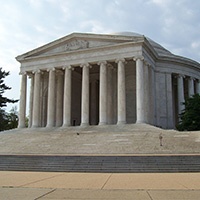 Lexington White Collar Crime Lawyers, Alabama
Lexington White Collar Crime Lawyers, Alabama
Sponsored Law Firm
-
 x
x

Click For More Info:
-
The Law Offices of Richard L. Cooper, P.A.
848 Brickell Avenue Suite 800 Miami, FL 33131» view mapDWI/DUI, Drug Trafficking, Felony Nationally Ranked Top 40 Under 40
With Richard L. Cooper you can expect a trusted confidant who will work diligently to fully understand your case and determine a road map to help you regain control of your life.
800-756-2781
Not enough matches for Lexington White Collar Crime lawyer.
Below are all Lexington Criminal lawyers.
Sponsored Lawyers
1-2 of 2 matches
Accident & Injury, Divorce & Family Law, Lawsuit & Dispute, Criminal, Expungement
James Atkinson is a practicing lawyer in the state of Florence, AL.
(more)



 Richard L. Cooper Miami, FL
Richard L. Cooper Miami, FL AboutMiami Attorney at Law
AboutMiami Attorney at Law ServicesCriminal Defense
ServicesCriminal Defense

